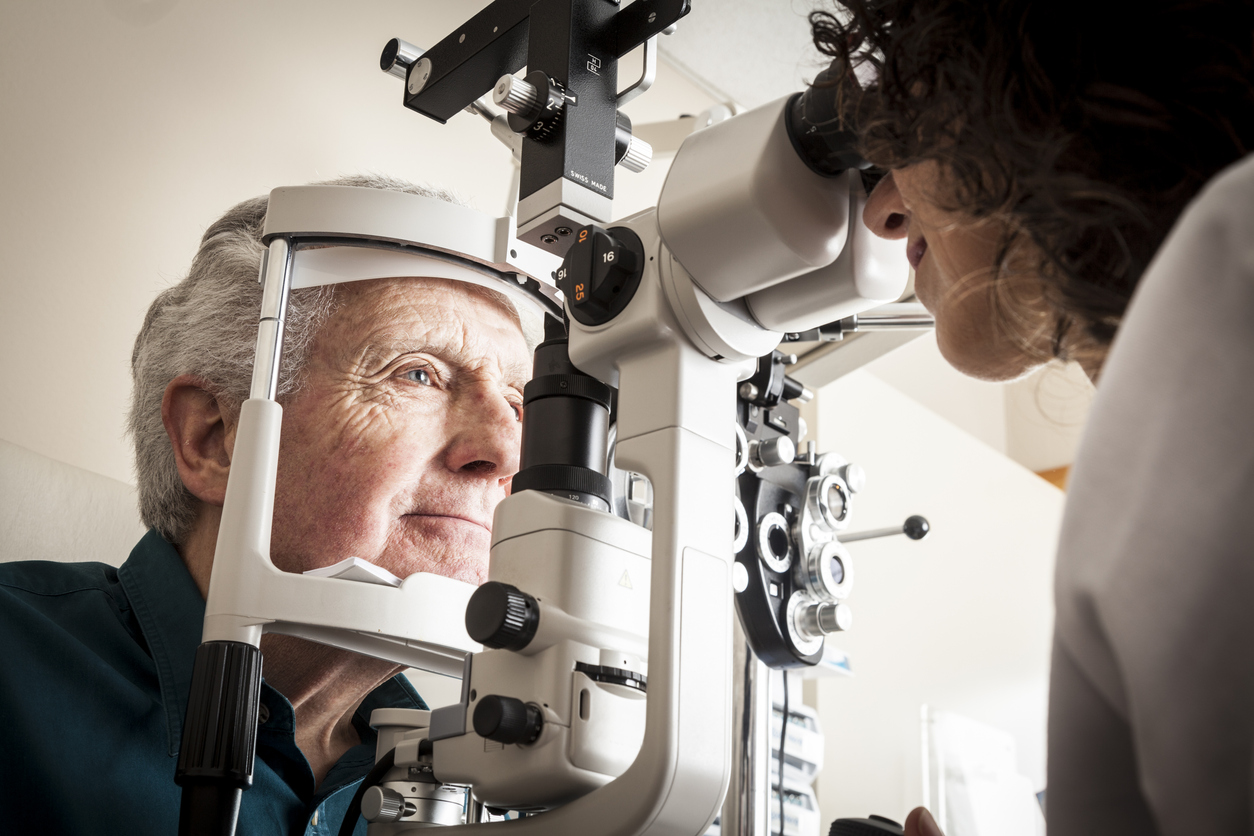Macular degeneration, also known as age-related macular degeneration (AMD), is a prevalent eye condition that affects millions of people around the world, particularly those aged 50 and older. This progressive eye disease can have a significant impact on a person's vision, making it essential to understand its causes, symptoms, risk factors, and available treatments. Keep an eye out – you don't want to miss these early Macular Degeneration signs!

The Macula: The Center of Vision
The macula is a small, sensitive area in the center of the retina, the part of the eye responsible for processing visual information. This tiny region plays a pivotal role in our ability to read, recognize faces, see fine details, and appreciate vibrant colors. In essence, the macula is the powerhouse of our central vision. Any damage to this area can significantly impair one's sight, making macular degeneration a matter of concern.
Types of Macular Degeneration
There are two primary types of macular degeneration: dry (atrophic) and wet (neovascular). Dry macular degeneration is the most common form, accounting for about 85-90% of AMD cases. It is characterized by the gradual breakdown of cells in the macula, resulting in a slow and progressive loss of central vision. In contrast, wet macular degeneration, though less common, is more aggressive. It involves the abnormal growth of blood vessels beneath the retina, which can leak fluid and blood, causing sudden and severe vision loss.
The Silent Progression of Dry Macular Degeneration
Dry macular degeneration typically advances slowly, often without immediate symptoms. Over time, you may start to notice blurriness or distortion in your central vision. Straight lines may appear wavy, and it may become more challenging to recognize faces or read small print. Although dry AMD is less severe than its wet counterpart, it can still have a substantial impact on your quality of life.
Wet Macular Degeneration: A Swift and Severe Onset
In contrast to the gradual progression of dry AMD, wet macular degeneration can lead to a sudden and severe loss of central vision. This is often due to the leakage of fluid and blood from abnormal blood vessels growing beneath the macula. While this type of AMD is less common, it requires immediate medical attention as it can cause rapid and severe vision impairment.
Risk Factors for Macular Degeneration
Understanding the risk factors associated with macular degeneration is crucial, as it can help individuals take steps to lower their chances of developing the condition. While age is the most significant risk factor, there are others to consider, such as family history, smoking, obesity, and certain genetic factors. The more risk factors one has, the greater their likelihood of developing macular degeneration.
Prevention and Lifestyle Changes
Although there is no surefire way to prevent macular degeneration, certain lifestyle changes can lower your risk and promote healthy eyes. Quitting smoking is one of the most significant steps you can take, as smoking is a major risk factor for AMD. Maintaining a healthy diet rich in fruits, vegetables, and omega-3 fatty acids can also help protect your vision. Regular exercise, maintaining a healthy weight, and managing conditions like hypertension can all contribute to a lower risk of developing macular degeneration.
Early Detection Through Regular Eye Exams
Regular eye examinations are crucial for early detection of macular degeneration. Your eye care professional can use various tests to assess the health of your macula and overall eye function. Early detection allows for timely intervention, potentially slowing the progression of the disease and preserving your vision.
Treatment Options for Macular Degeneration
While there is no cure for macular degeneration, several treatment options can help manage the condition and slow its progression. These treatments vary depending on the type of AMD and the stage at which it is diagnosed.
For wet macular degeneration, anti-VEGF (vascular endothelial growth factor) injections are often prescribed. These injections can help reduce the growth of abnormal blood vessels and minimize the leakage of fluid and blood into the macula.
In some cases, laser therapy may be used to seal the leaking blood vessels. However, this is less common than anti-VEGF injections and is typically reserved for specific situations.
For dry macular degeneration, there is no specific medication or procedure to reverse the condition. However, certain dietary supplements, such as the AREDS (Age-Related Eye Disease Study) formulation, can slow the progression of dry AMD in some individuals. Your eye care professional can advise you on the most appropriate treatment options based on your specific situation.
Living with Macular Degeneration
Coping with macular degeneration can be challenging, but it's essential to remember that many people continue to lead fulfilling lives despite their vision loss. Vision aids, such as magnifiers, specialized reading devices, and large print materials, can help individuals with macular degeneration maintain their independence and quality of life.
Support groups and counseling can also provide emotional assistance to those dealing with the emotional toll of vision loss. Learning new strategies for daily tasks and maximizing your remaining vision are important aspects of adapting to life with macular degeneration.
Research and Hope for the Future
Ongoing research into macular degeneration holds promise for new treatments and potential cures. Scientists are investigating the genetic and environmental factors that contribute to AMD, as well as novel therapies aimed at preserving and restoring vision. As our understanding of this complex condition deepens, the prospects for those affected by macular degeneration continue to improve.
Conclusion
Macular degeneration is a common eye condition that can have a profound impact on a person's quality of life. Understanding the types of AMD, risk factors, prevention strategies, and available treatments is essential for both individuals at risk and those already diagnosed. With early detection and proper management, many individuals with macular degeneration can continue to lead fulfilling lives, and ongoing research offers hope for improved treatments in the future.



